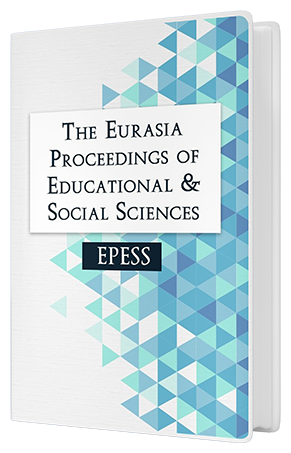Effects of Writing to Learn Activities in Hands-on and Virtual Laboratory Environments
Keywords:
Science writing heuristic, hands-on lab, Virtual lab, Attitude, AchievementAbstract
The Science Writing Heuristic (SWH) approach mainly developed by Hand and Keys (1999). The approach involves two sets for both teachers and students to be mindfully active in an inquiry based laboratory environments. The set for students provides scaffolds in written form in order to help metacognition about their lab experiments (Hohenshell & Hand, 2006) and the set for teachers enable them to design inquiry based science laboratories. In the current study, it was investigated that the effects of SWH approach in hands-on and virtual lab environments on pre-service science teachers’ laboratory skills and science achievements. Quasi-experimental research design was used in the current study. Participants of the study were 52 pre-service science teachers. They were assigned into two groups, one of which them used hands-on laboratory environment, coded as control group. The other group used virtual laboratory environment called as experimental group. The attitude scale towards laboratory skills and the achievement test were used in the study. Overall results indicated that SWH based lab environments are equally effective on students’ attitudes and achievements.Downloads
Published
Issue
Section
License
Copyright (c) 2018 The Eurasia Proceedings of Educational and Social Sciences

This work is licensed under a Creative Commons Attribution-NonCommercial-ShareAlike 4.0 International License.
The articles may be used for research, teaching, and private study purposes. Any substantial or systematic reproduction, redistribution, reselling, loan, sub-licensing, systematic supply, or distribution in any form to anyone is expressly forbidden. Authors alone are responsible for the contents of their articles. The journal owns the copyright of the articles. The publisher shall not be liable for any loss, actions, claims, proceedings, demand, or costs or damages whatsoever or howsoever caused arising directly or indirectly in connection with or arising out of the use of the research material. All authors are requested to disclose any actual or potential conflict of interest including any financial, personal or other relationships with other people or organizations regarding the submitted work.




